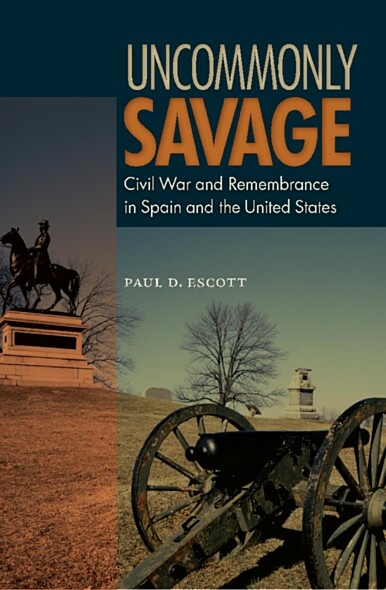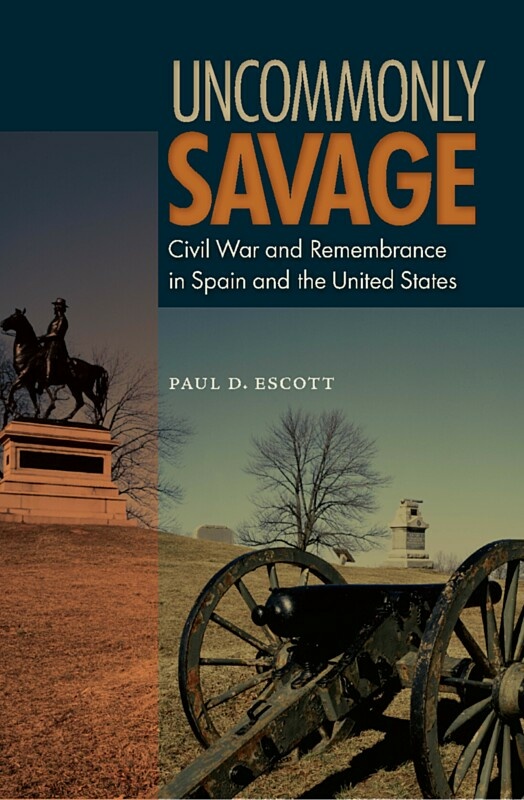
Uncommonly Savage
Civil War and Remembrance in Spain and the United States
“Truly impressive. Travels uncharted terrain, moving deftly through a vast scholarship in two languages. The research is sound, the prose crisp and accessible, and the subject unquestionably important.”—W. Fitzhugh Brundage, author of The Southern Past: A Clash of Race and Memory
“Illuminates the enduring potency of memory in shaping postwar societies for generations after the fighting ceased, reminding us that both losers and victors often had powerful motives to remember—and to forget.”—Caroline E. Janney, author of Remembering the Civil War
“Traces the dynamics of memory in the aftermath of the Spanish and American civil wars and demonstrates how similar processes of closure, willful blindness, and ideological inculcation worked out in the different contexts to produce sometimes similar but often radically different outcomes.” —Cillian McGrattan, author of Memory, Politics and Identity
“With an engaging narrative and deep research, the book is a model of the benefits derived from a truly comparative study.”—David Goldfield, author of Still Fighting the Civil War
Spain and the United States both experienced extremely bloody and divisive civil wars that left social and emotional wounds, many of which still endure today. In Uncommonly Savage, award-winning historian Paul Escott considers the impact of internecine violence on memory and ideology, politics, and process of reconciliation. He also examines debates over reparation or moral recognition, the rise of truth and reconciliation commissions, and the legal, psychological, and religious aspects of modern international law regarding amnesty.
In crisp prose, Escott successfully shows how inertia ruled in both postwar societies, but also how change eroded continuity.’—Choice ‘Breaks new ground. . . . A uniquely comparative work that looks at the two civil wars in diachronic comparative perspective.’—Journal of American History ‘A useful contribution to the burgeoning scholarly literature on historical memory as a transnational phenomenon.’—American Historical Review ‘Suggest[s] fruitful new directions for comparative historians: what happens in the aftermath of violent conflicts, when the guns fall silent?’—Civil War Monitor ‘In crisp prose, Escott successfully shows how inertia ruled in both postwar societies, but also how change eroded continuity.’—Choice ‘An intellectual tour de force.’—Civil War Book Review ‘A fascinating study of war, memory, and reconciliation.’—Journal of the Civil War Era ‘An engaging success on the theme of war and memory.’—Civil War History ‘A nice discussion of the similarities of the two civil wars . . . [and] an excellent discussion of five great dissimilarities between the outcomes.’—Journal of America’s Military Past ‘Rewarding. . . . Demonstrates how even unlikely comparative histories can yield great insights.’—Journal of Southern History ‘[Escott] presents his arguments in a fresh ways that challenges assumptions we all bring about the memory of war and its impact.’—Journal of Military History
Paul D. Escott is the Reynolds Professor of History at Wake Forest University and author of numerous books, including Slavery Remembered, Many Excellent People, “What Shall We Do With the Negro?” and The Confederacy.




